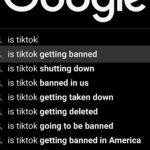It’s that time of year – the rush to procure airline tickets and figure out travel plans for the rapidly approaching holidays. As of the first week of October, 31% of U.S. adults plan to travel for the holidays, identical to last year’s numbers. That’s up from 17% in 2020.
Travel is holding steady from 2021, but also hasn’t grown. Instead, the data show mild shifts in who plans to travel. Slightly greater numbers of travelers who don’t typically travel for the holidays will do so this year, while alternately, slightly fewer typical travelers plan to travel.
In general, young adults are more likely to travel for the holidays, as seen year-over-year. But proportionally, Gen Z adults have the highest percentage of atypical travelers who plan to travel this year (at 30%).
How much, if at all, are travel plans being impacted by COVID? So far, the survey data suggest that COVID is much less likely to be a deterrent for holiday travel this year compared to 2021, when the majority of Americans said the pandemic was at least somewhat likely to impact their plans.
Initial results suggest that the Omicron booster shot may have some effect on travel confidence. Close to 1-in-5 people likely to travel have already received the booster, compared to just 12% of those unlikely to travel. However, the majority of people likely to travel aren’t planning to get the shot or are only planning to get it if COVID cases rise.
As COVID concerns wane across the board, financial concerns are growing. An increasing number of Americans report they are financially worse off now than before the pandemic, more price-sensitive, and more concerned over inflation and gas & energy prices.
At a high level, we see an inverse relationship between likelihood to travel and those who are worse off financially, suggesting that fluctuating financial concern could impact the likelihood to travel.
Check back for more on this topic as CivicScience monitors these trends as the season progresses. Download the CivicScience Holiday Tracker for more detailed consumer insights.








